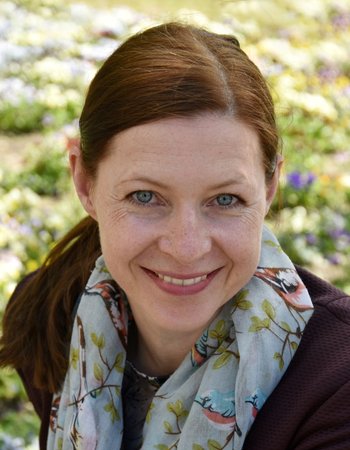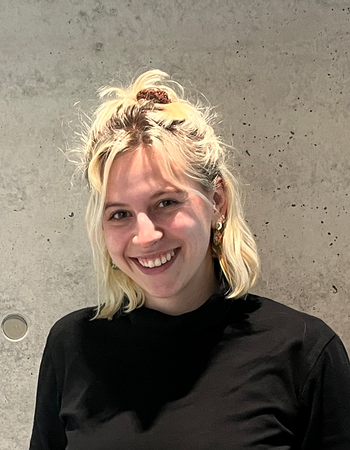Property Inequality in the Private Sphere: Couple-Internal and External Drivers of Change in Property Arrangements in Couple Relationships

Outline
The first phase of the project also showed that establishing a property regime helps to stabilize relationships and avoid property-related conflicts, and that couples can be characterized by a profound property oblivion. Older couples, in particular, do not always know who owns what, which means that inequalities between partners remain hidden. Therefore, the project's second aim is to investigate the conditions under which property relations within couples’ relationships become visible again, potentially sparking conflict and negotiation. We will analyze key internal turning points—such as marriage, parenthood, inheritance, gifts, separation, and divorce—regarding their impact on property arrangements between spouses.
Findings from the first project phase suggest that younger couples are increasingly diversifying their property arrangements, reflecting modern individualistic property ideals, anti-consumerist attitudes, gender equality aspirations, and financial autonomy. However, as many younger couples have not yet experienced critical internal turning points (e.g., marriage or parenthood), it remains unclear whether this diversification will persist in the long run. Therefore, a longitudinal design will be adopted to examine whether and how the experience of these internal turning points reshapes property arrangements, potentially resulting in a return to the more traditional patterns observed in older cohorts. For this analysis, we will again use quantitative data from the German Socio-Economic Panel (SOEP), complemented by qualitative follow-up interviews with panel couples and an additional sample of separated couples.
Finally, the project has found that changes in external property regimes significantly influence changes in property arrangements within couples, as exemplified by the impact of German reunification on older East German couples. Similarly, younger couples are likely to be influenced by the financialization and assetization of property (e.g., real estate and financial investments) as well as changes in gender norms and ideals. Therefore, we will examine how these external factors might cause changes in couples’ property arrangements, particularly the observed increase in the pluralization and individualization among younger couples. The empirical design integrates findings from the qualitative couple panel interviews and discourse analyses of the financial advice literature. The latter approach enables us to examine how financial advisors specifically address women as new autonomous financial market actors, to explore the highly gendered discourse of financial advice, and to assess how competing gender norms affect couples' property arrangements. Overall, this empirically grounded subproject provides fundamental insights into the potential structural transformation of private property arrangements.
Project Activities
Publications
Academic publications
-
Saalfeld, R. (2025): „From Renters to Investors? Residential Property and the Asset Economy in German Couples’ Lives", In: Housing, Theory and Society, 1-22.
-
Althaber, A. (2024): „Wem gehört das Geld in Paarbeziehungen? Neue Herausforderungen zwischen Ungleichheit und Individualisierung“, In: Kurswechsel. Zeitschrift für gesellschafts- , wirtschafts- und umweltpolitische Alternativen 3, 20-35.
- Peters, F.; Rinne, J.; Saalfeld, R. K.; Schmalz, S.; Stuart, A.; Weth, L. von der (2024): Eigentumskonflikte - eine Typologie. Hg. v. Sonderforschungsbereich/Transregio 294 „Strukturwandel des Eigentums“ (Working Paper Nr. 5). https://sfb294-eigentum.de/media/filer_public/f9/08/f908691c-7aaa-424c-831b-71e7818ee46b/wp_05_fin.pdf.
- Saalfeld, R. K., & Mann, L. (2024): “'Und dann ging alles seinen sozialistischen Gang'. Paarbildung, Paarwelten und Umgang mit Eigentum in Ostdeutschland.”, In: A. Kasten (ed.), Feministische Postsozialismusforschung. Eine Spurensuche, Weinheim: Beltz Juventa.
- Althaber A.; Leuze, K.; Künzel, R. (2023): “Financial Solidarity or Autonomy? How Gendered Wealth and Income Inequalities Influence Couples’ Money Management.“, In: Social Inclusion 11(1), 187-199, DOI: 10.17645/si.v11i1.6005.
- Saalfeld, R. K., & Scholz, S. (2023): “Wer das Geld hat, hat die Macht? Verhandlungen von Property Gaps in Paarwelten.”, In: P. I. Villa Braslavsky (ed.), Polarisierte Welten. Verhandlungen des 41. Kongresses der Deutschen Gesellschaft für Soziologie in Bielefeld 2022.
- Scholz, S. (2022): “Familiale Care-Arbeit - eine Angelegenheit der Frauen? Gemeinsamkeiten und Unterschiede im deutschen Ost-West-Vergleich.”, In: Bürger & Staat (3), 99–106.
Media and podcasts
- Residential Property, Couples, and New Logics of Inequality in the Asset Economy, Robin K. Saalfeld in dialogue with Lisa Adkins (University of Sydney) in the SFB-Podcast (18.07.2023).
- Eigentumsungleichheit in Paarbeziehungen, Sylka Scholz and Robin K. Saalfeld in a radio interview on MDR Kultur.
Lectures (selection)
- Saalfeld, R. K., From Renters to Investors?: Residential Property and the Asset Economy in German Couples, 16th Conference of the European Sociological Association, University of Porto (01.09.2024).
- Althaber, A., Kapelle, N., & Leuze, K., Until Death Do Us Part? Couples’ relative resources and money management strategies in Eastern and Western Germany, conference “Ungleichheit und Zusammenhalt” of the Section on Social Inequality and Social Structure Analysis of the German Sociological Association and the Research Institute for Social Cohesion, Bremen (05.03.24).
- Saalfeld R. K., Der „Traum vom eigenen Haus“: Wohneigentum in Paarbeziehungen in Deutschland, Jahrestagung der Sektion Frauen- und Geschlechterforschung der Deutschen Gesellschaft für Soziologie, Osnabrück (17.11.23).
- Saalfeld R. K., Scholz, S., & Althaber, A., Conflicts over Property in Intimate Relationships, Jahrestagung des SFB 294, Erfurt (06.10.2023).
- Saalfeld, R.K., & Scholz, S, Die langen Schatten der Wiedervereinigung auf Eigentumsungleichheiten zwischen Paaren im ost-westdeutschen Vergleich, Herbsttagung der Sektion Soziale Ungleichheit der Deutschen Gesellschaft für Soziologie zum Thema „Ungleichheiten in Ost- und Westdeutschland – Persistenz oder Wandel?“, Jena (26.09.2023).
- Althaber, A., & Klusáček, J., Does financial integration make romantic partners happier? On the moderating effect of relative resources on relationship satisfaction in German couples, Institute of Sociology of the Czech Academy of Sciences, European Consortium for Sociological Research Annual Conference 2023, Prague (19.11.2023).
- Althaber A., & Leuze, K., Can Couples' Money Management Mitigate Wealth and Income Inequalities between Partners? A Comparison of East and West Germany, Stone Center for Inequality Dynamics, University of Michigan. ISA RC28 Summer Meeting, Ann Arbor (23.08.2023).
- Saalfeld, R. K., What’s Mine Is Yours!? Property Arrangements Among German Couples, University of Melbourne, RC session on „Experiences and Consciousness of Inequality“ at the XX ISA World Congress of Sociology, Melbourne (23.07.2023).
- Althaber A., & Leuze, Gendered Wealth and Income Inequalities and Couples' Money Management in East and West Germany, Centre on Household Assets and Savings Management (CHASM), University of Birmingham. ECSR Network Workshop “Wealth Inequalities, Gender, and Family Structures”, Birmingham (15.06.2023).
- Althaber, A., & Leuze, K., „Mein, dein oder unser Geld? Ressourcenungleichheiten und die Geldverwaltung von Paaren in Ost- und Westdeutschland.“, GESIS, Frühjahrstagung der Sektion „Soziale Ungleichheit und Sozialstrukturanalyse", Mannheim. (23.03.2023)
- Althaber, A., & Leuze, K., „Einigkeit in Geldfragen? Quantitative Forschungsergebnisse zu Eigentumsungleichheiten und der Geldverwaltung von Paaren in Ost- und Westdeutschland.“, Friedrich-Schiller-Universität Jena. Forschungskolloquium Paare soziologisch. Eine qualitative und quantitative Liaison, Jena. (08.02.2023)
- Saalfeld, R. K., & Korn, A., „Meine Frau hat nach wie vor Verarmungswahn“ – Eigentum, Klasse und Geschlecht in ost- und westdeutschen Paarhaushalten, Friedrich-Schiller-Universität Jena, Forschungskolloquium Paare soziologisch. Eine qualitative und quantitative Liaison, Jena. (25.01.2023)
Events (selection)
2023
- Co-organisation and implementation of the annual conference of the Social Inequality Section of the German Sociological Association on “Ungleichheiten in Ost- und Westdeutschland – Persistenz oder Wandel?”, Agnieszka Althaber, Kathrin Leuze, Robin K. Saalfeld & Sylka Scholz Friedrich Schiller University Jena (25.-26.09.2023).
- Organisation and implementation of the ECSR Network Workshop on “Wealth Inequalities, Gender, and Family Structures”, Agnieszka Althaber together with Nicole Kapelle, Ellie Suh & Daria Tisch, Centre on Household Assets and Savings Management (CHASM), University of Birmingham, UK (15.-16.06.2023).
- Organisation and implementation of the research colloquium “Paare soziologisch. Eine quantitative und qualitative Liaison” of the AB Qualitative Methoden und Mikrosoziologie & des AB Methoden der empirischen Sozialforschung und Sozialstrukturanalyse des Instituts für Soziologie, Kathrin Leuze & Sylka Scholz, Friedrich-Schiller-Universität Jena. (16.10.2022-08.02.2023).
2022
- Organisation and implementation of the Ad-hoc-Gruppe “Polarizations by Wealth? Institutional determinants and consequences of wealth inequalities” in the framework of the 41st Congress of the German Sociological Association, Agnieszka Althaber & Nora Müller (GESIS, Mannheim). University of Bielefeld. (27.09.2022).
- Organisation and implementation of the Ad-hoc-Gruppe “Was meins ist soll auch deins sein?! Eigentum in entpolarisierten Paarwelten” in the framework of the 41st Congress of the German Sociological Association, Sylka Scholz & Robin K. Saalfeld gem. mit Christine Wimbauer und Mona Motakef. University of Bielefeld. (27.09.2022).
- Organisation and implementation of the SFB Methods Workshop: “Eigentum erforschen – Forschungsdesigns und erste Felderfahrungen im SFB/Transregio Strukturwandel des Eigentums.”, Friedrich-Schiller-University Jena. (24.-25.03.2022).





